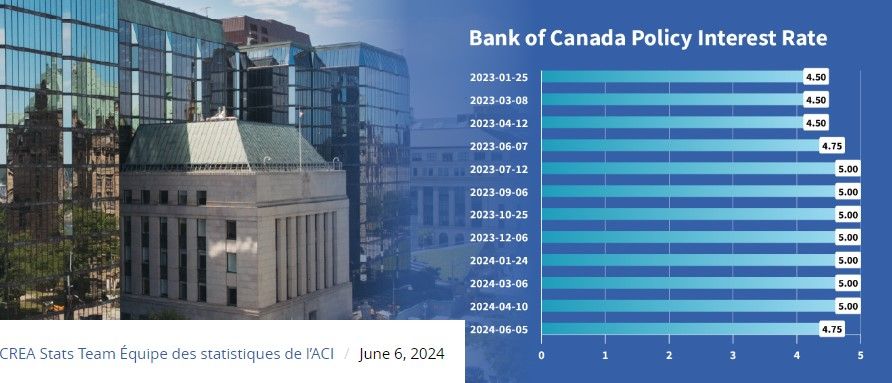Updated on Thursday, July 4, 2024
1. Federal Home Buyers’ Plan
Qualifying homebuyers can withdraw up to $60,000 (couples up to $120,000) from their RRSPs for a down payment. Must begin repaying within five years and repay within 15 years. Eligibility to use program a second time: home buyers who’ve experienced a breakdown in their marriage/common-law partnership and those who have repaid their RRSP. Can be used together with the First Home Savings Account program. Canada Revenue Agency. Learn more.
2. Federal Tax-Free First Home Savings Account (FHSA)
Qualifying first-time buyers can contribute up to $8,000 yearly to a maximum of $40,000 towards a down payment. Contributions are tax deductible; Capital gains (earnings) and interest are tax-free. Can be used together with the Home Buyers’ Plan. Learn more.
3. First-Time Home Buyers’ Program
Qualifying first-time buyers may be exempt from paying the PTT (one per cent on the first $200,000 and two per cent on the remainder of the purchase price of a resale home) for homes priced up to $835,000, with the first $500,000 exempt from the PTT. The phase out range is $25,000 above the threshold, with the complete elimination of the exemption at $860,000. New thresholds begin April 1, 2024. Foreign entities, taxable trustees, ineligible. Learn more. 1-888-355-2700.
4. Newly Built Home Exemption
Qualifying buyers of new homes may be exempt from paying the PTT on a newly built home or newly subdivided unit priced up to $1,100,000, and a partial exemption on newly built homes priced up to $1,150,000. Begins April 1, 2024. Learn more. 1-888-355-2700.
5. Provincial new purpose-built rental buildings exemption
Buyers of new qualifying purpose-built rental buildings will be exempt from the PTT starting January 1, 2025, and ending December 31, 2030. The purpose-built rental building must have at least four separate apartments that are non-stratified and held as rentals monthly or longer, for at least 10 years. Learn more. 1-888-841-0090.
6. Provincial flipping tax exemption
Effective January 1, 2025, homebuyers who sell a residential property, including a presale assignment, within two years of buying will be taxed 20 per cent within the first year of purchase, declining to zero between 366 and 730 days. A property is tax exempt if homebuyers are adding to the housing supply, developing/constructing housing; or have life changes – separation, divorce, death, disability, illness, work relocation work, job loss, insolvency, or personal safety. Homeowners selling their primary residence within two years of purchase can exclude a maximum of $20,000 when calculating their taxable income. Learn more. Questions: ITBTaxQuestions@gov.bc.ca.
7. Provincial secondary suite incentive loan program
Forgivable loans up to $40,000 for homeowners to build and rent an affordable secondary suite at below market rates to increase affordable rental supply. Learn more and check eligibility. 604‑439‑4727 or 1‑877‑757‑2577 and select option three or use this secondary suite web form.
8. Federal First-Time Home Buyers’ Tax Credit (HBTC)
Eligible persons who bought a qualifying home can claim the home buyers’ amount of $10,000 on Line 31270 of Schedule 1 when filing their 2022 income tax and benefit returns. Learn more and here. 1-800-959-8281.
9. Provincial renter tax credit
If a renter has low-to-moderate-income ($60,000 or less) there's a new annual income-tested tax credit of up to $400 per year for renters. Learn more. 1‑800‑959‑8281.
10. GST/HST New Housing Rebate
Homebuyers buying a newly-built home can apply for a rebate for the five per cent GST if the purchase price is $350,000 or less. The rebate is equal to 36 per cent of the GST to a maximum rebate of $6,300. There is a proportional GST rebate for new homes costing between $350,000 and $450,000. There is no rebate for homes priced at $450,000+. Learn more. 1-800-959-8287.
11. CMHC Mortgage Loan Insurance Premium refund
Provides homebuyers with CMHC mortgage insurance, up to a 25 per cent premium refund and possible extended amortization without surcharge when buyers purchase an energy efficient home or make energy saving renovations. Learn more. 604-731-5733.
12. BC Home Owner Grant
Reduces property taxes for homeowners with an assessed or partitioned value up to $2.125 million. The grant is reduced by $5 for each $1,000 above the threshold. The grant threshold applies across the province. The amounts are:
$570 for the basic grant;
$770 if the home is located in a northern or rural area;
Up to $845 for homeowners age 65 and more or a homeowner with a disability; and
Up to $1,045 for homeowners age 65 and more or a homeowner with a disability where the home is in a northern or rural area. Learn more. hogadmin@gov.bc.ca. 1‑888‑355‑2700.
13. BC Property Tax Deferment Programs
Property Tax Deferment Program for Seniors: qualifying homeowners aged 55+ can defer property taxes.
Property Tax Deferment Program – Financial Hardship: qualifying low-income homeowners can defer property taxes.
Property Tax Deferment Program for Families with Children: qualifying homeowners who financially support children under age 18 can defer property taxes.
Learn more. Vancouver: 1-888-355-2700 or 250-387-0555.
14. Multigenerational Home Renovation Tax Credit
Families adding a secondary unit to their home for an immediate or extended family member to live with them can claim a 15 per cent tax credit for up to $50,000 in renovation and construction costs. Learn more.
15. Home Accessibility Tax Credit
Doubles the qualifying expense limit of qualifying home renovations up to $20,000 for 2022 and subsequent years. This tax credit is up to $3,000 for accessibility renovations or alterations. Learn more.
16. Homebuyers’ tax credit for persons with disabilities
Persons with disabilities, or persons with a spouse or common-law partner with disabilities, may be eligible for a disability tax credit, even if they’re not a first-time home buyer. Learn more.
17. Tax deductions for moving for work
Persons who get a new job and move a minimum of 40 kilometres closer to work may be able to deduct all moving costs, including the costs of selling real estate, ending a lease or mortgage, flights, movers, and temporary housing. Learn more.
18. Expanded heat-pump program
BC’s expanded heat-pump program is taking applications, with savings of up to $24,000. Learn more here or call 1-833-856-0333 or email IncomeQualifed@betterhomesbc.ca.
19. BC Rebate for Accessible Home Adaptations
This program provides up to $17,500 in rebates for adaptations to a home. Must be a resident of BC with limited income and assets. Eligible households include homeowners and joint applications from tenants and landlords – someone in the household must have a permanent disability or loss of ability. Learn more. 604-433-2218 or 1-800-257-7756.
20. Home Renovation Tax Credit for seniors and persons with disabilities
Assists eligible seniors 65+ with the cost of eligible permanent home renovations to a principal residence to improve accessibility. Maximum refundable credit: $1,000 per tax year, calculated as 10 per cent of the qualifying renovation expense (maximum $10,000). Forms are available online. Learn more. 1-800-959-8281.
21. BC Electricity Affordability Tax Credit
A new, one year electricity affordability credit for all households, regardless of income starting in April 2024. Households will save on average $100 a year on their electricity bills. Commercial and industrial customers will receive savings of about 4.6 per cent based or about $400 on their 2023/24 electricity bills. Learn more.
Download
Download 21 grants and rebates for homebuyers and owners (opens 2-page PDF).












